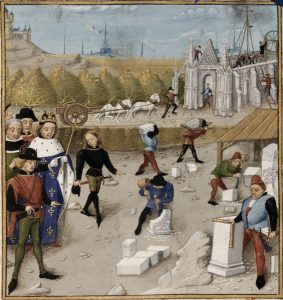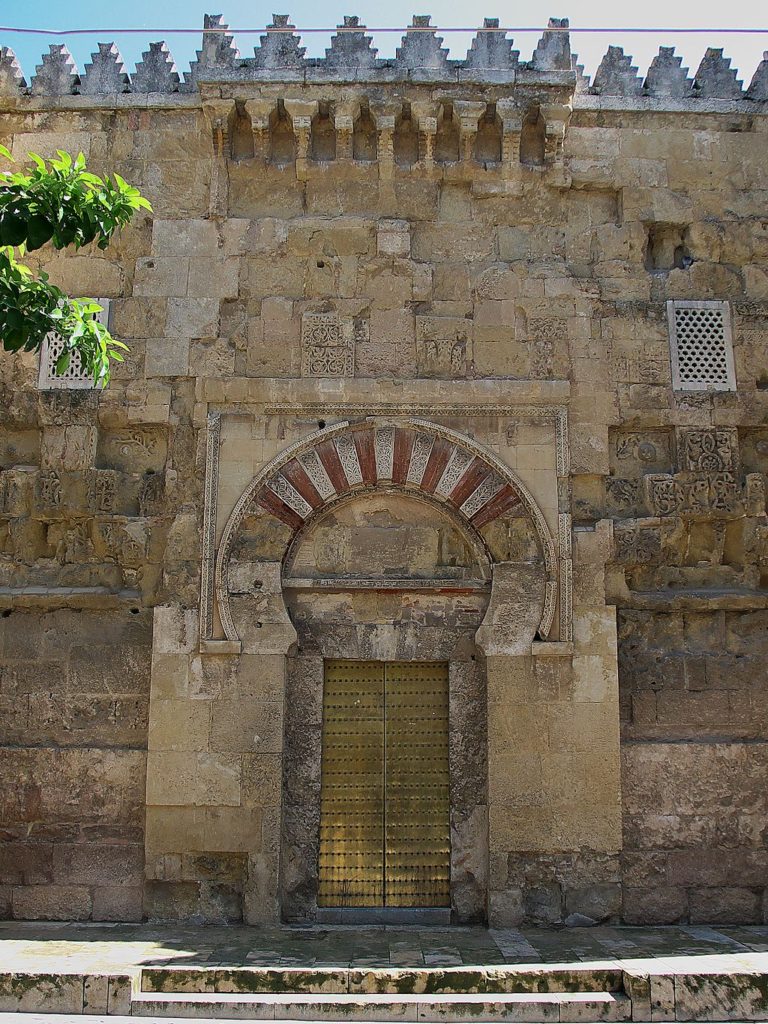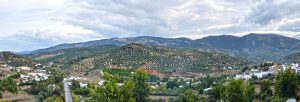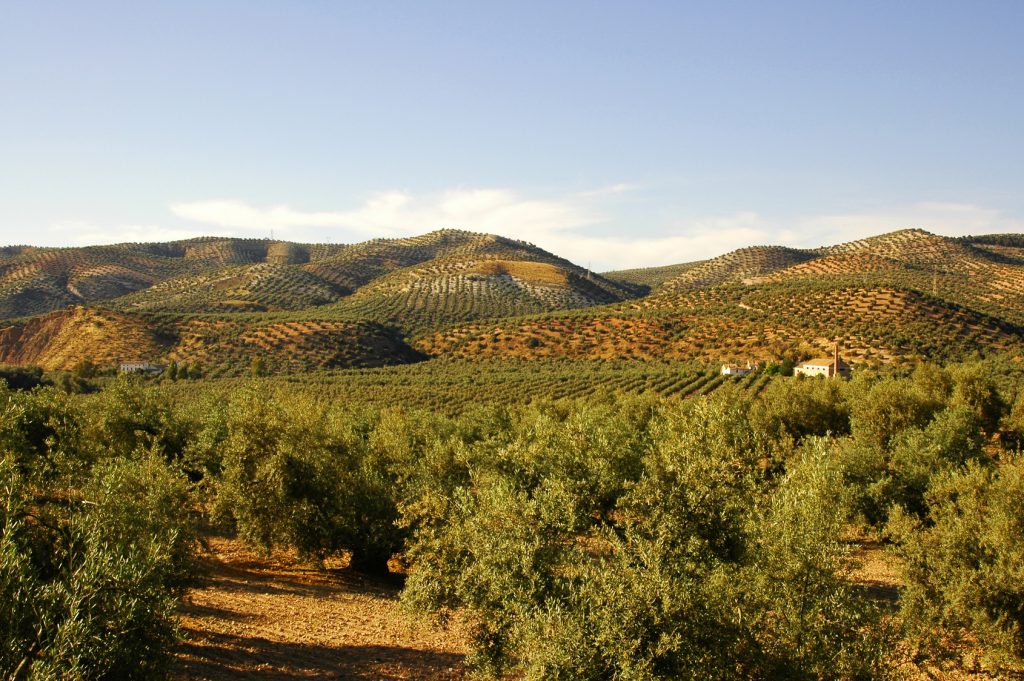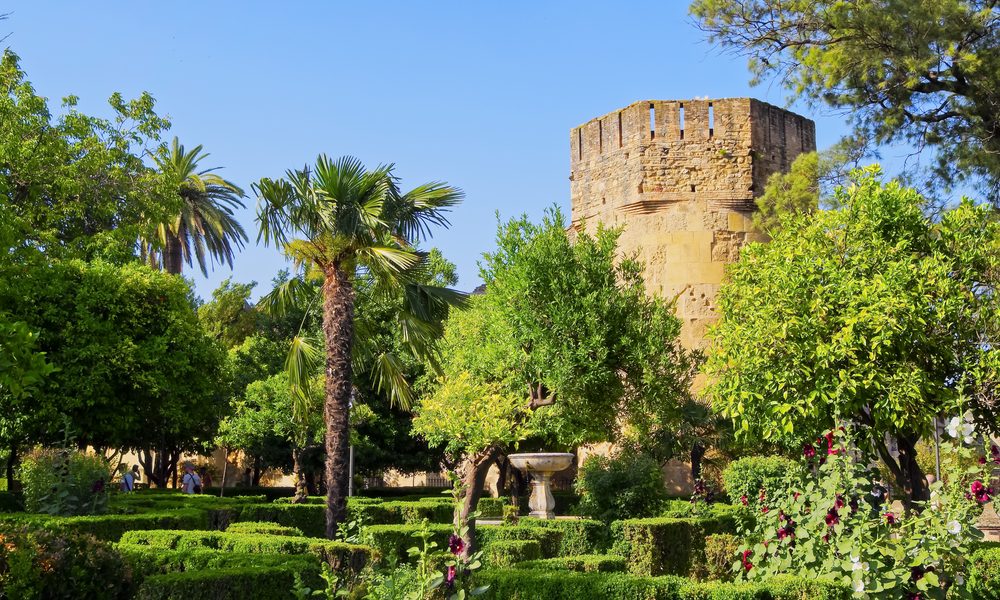
750 AD to 770 AD, Psalm 85: New World.
This site was first built in French (see www.147thgeneration.net). The English translation was mainly done using « google translation ». We have tried to correct the result of this translation to avoid interpretation errors. However, it is likely that there are unsatisfactory translations, do not hesitate to communicate them to us for correction.
(for that click on this paragraph)
Summary
This generation is from the years 750 AD to 770 AD.
According to our count, this generation is the 85th generation associated with Psalm 85. It is in this Psalm 85 that we therefore find an illustration of the facts of this generation.
This generation is marked by a complete redefinition of the map of the ancient world (Mediterranean and European).
Pépin the brief puts an end to the Merovingian dynasty for the benefit of the Carolingian dynasty (taking its name from Charlemagne his best representative). The appearance of Christianity made precarious the situation of the Jews in France (corresponding territories) it was aggravated under the Merovingian dynasty. The new Carolingian power, on the contrary, is favorable to the Jews and allows them a new fulfillment.
At the level of the Arab empire, the Abbasid dynasty succeeds the first Umayyad dynasty. The Abbasid revolution temporarily diverts the attention of the Arabs towards the Byzantines. Byzantium, although the great loser of this new world, finds the way to keep its place among nations for many centuries.
The Abbasid revolution succeeded in putting an end to the Umayyad dynasty in favor of its own (the Abbasid dynasty) with a paradoxical result: the parallel birth of a new Umayyad dynasty outside the traditional lands of Islam. In Spain in Cordoba.
Abdar Rahman, who miraculously escaped the Umayyad massacre, asserts himself in Cordoba. He will succeed in preserving and consolidating the new Umayyad Caliphate of Cordoba. The Umayyad dynasty was thus restored to the other end of the Mediterranean, just six years after being almost destroyed in Damascus. It will rule al-Andalus for nearly three centuries. Cordoba which for many generations became the capital of the West.
This new Islamic dynasty on the sidelines of the official Abbasid dynasty, struggling to cope with minorities in order to survive, becomes a fertile ground for the development of Jewish communities. Spain will thus be seen as a new promised land for the Jews before further disillusionment in a few centuries.
Andalusia is the cradle of the Sephardic culture (“Spanish”) while the Carolingian kingdom is the birthplace of the Ashkenazi (“German”) culture. The Muslim West as well as the Christian West are for this generation sources of fulfillment for the Jewish people. In appearance, this generation thus marks a profitable break in the destiny of the people of Israel.
Talk
Pépin the brief
This generation is marked by a complete redefinition of the map of the ancient world (Mediterranean and European).
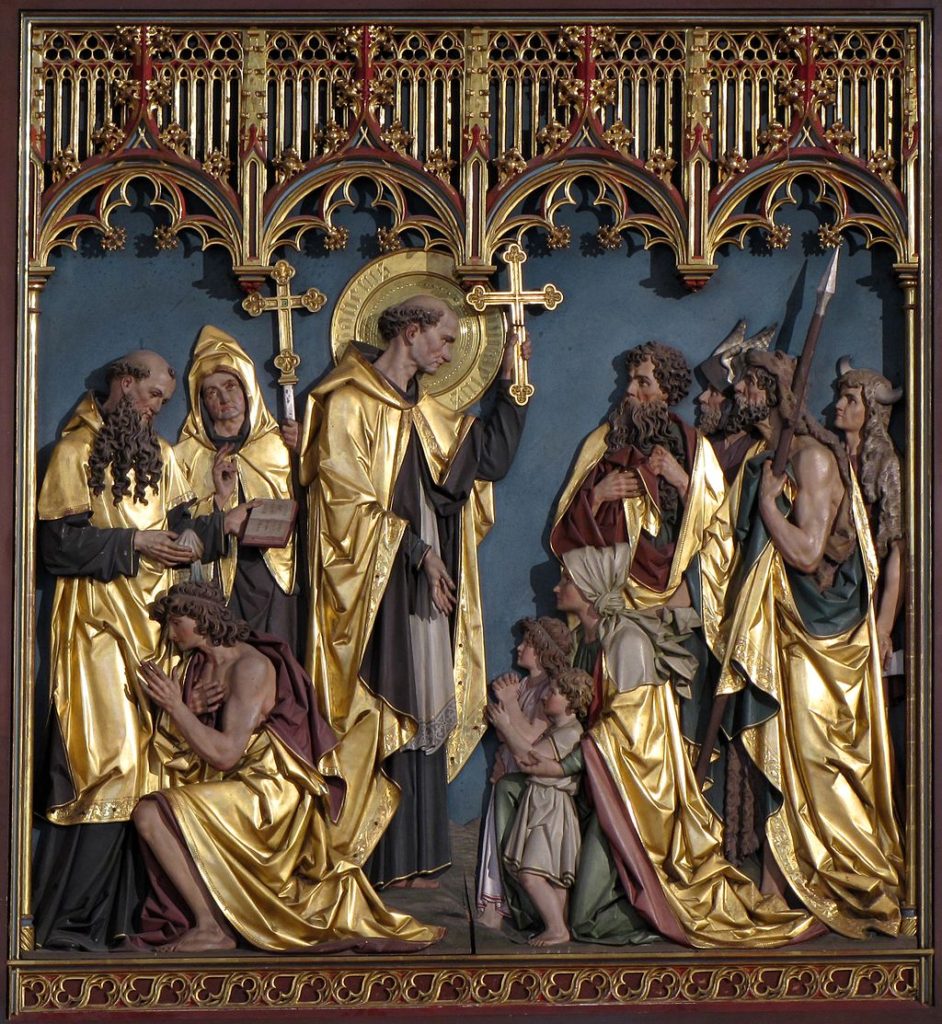
Pépin the brief puts an end to the Merovingian dynasty for the benefit of the Carolingian dynasty (taking its name from Charlemagne his best representative), his advent and his support for the Papacy allows a new emergence of the Holy See.
Many ancient Jewish communities populate the kingdom Franc which takes off:
- Great merchants [1], carried by the wave of migration that the Roman legions bring to the western shores of the Mediterranean: such are the Jews of Gaul. […]
The appearance of Christianity made the situation of the Jews in France (corresponding territories) precarious. This worsened under the Merovingian dynasty.
To the various anti-Jewish measures, Dagobert added expulsion in 633 AD. Probably without much effect.
The new Carolingian power, on the contrary, is favorable to the Jews and allows them a new fulfillment:
- The Jews [2] resume, under the authority of the Carolingian kings, a much more advantageous place. They know, the Jewish merchants, to be discreet, to resettle in the place without ostentation, with great obstinacy, with that perseverance which is one of their first virtues. They also know, and this is one of the secrets also of their strength, to be useful. Their commercial relations are marvelous: they have « antennas » everywhere, « correspondents » to the far reaches of the East and are thus able to bring to the Christian West precious products that amaze and serve. Already, on the land of Gaul conquered by Christianity, some of them build fortunes. Charlemagne and Louis le Débonnaire (« debonair »), who have valued the presence of the Jews in France, take them under their protection.
Abbasid dynasty
At the level of the Arab empire, the Abbasid dynasty succeeds the first Umayyad dynasty.
The will of the Abbasids to destroy all descendants of the Umayyads is vain: one of the princes survived the massacre and founded the Umayyad of Cordoba. This new situation is obviously not neutral for the evolution of Jews in the next generations.
Byzantium, although the great loser of this new world, despite a defensive stance towards external threats (threats Arab and Bulgarian for the next generations) finds the way to keep its place among nations for many centuries.In Byzantium, this generation is still marked mainly by the reign of Constantine V Copronymus (743-775). The Abbasid revolution temporarily diverts the attention of the Arabs towards the Byzantines, Byzantium takes the opportunity to fight the Bulgarian threat but neglects the threat Lombard.
After eliminating the Umayyad dynasty, Abu Abbas Al Saffa’h (749-754) became the first Abbasid caliph. His succession will be ensured by his brother Al Mansur (754-775). The latter founded the city of Baghdad in 762 which became the new capital to replace the old capital Umayyad: Damascus (meanwhile, the Abbasid caliphs had moved to Kufa).
Cordoba
The Abbasid revolution succeeded in putting an end to the Umayyad dynasty in favor of its own (the Abbasid dynasty) with a paradoxical result: the parallel birth of a new Umayyad dynasty outside the traditional lands of Islam. In Spain in Cordoba.
Fleeing further and further west, Abdar Rahman first tried unsuccessfully to impose his authority on his maternal tribe (in Sabra, Morocco today).
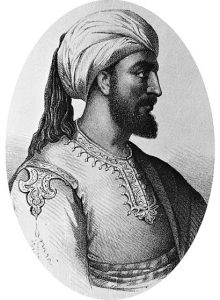
It was then that he turned to Spain where he remained many Umayyad « emigrants », where he ended up imposing himself by force. Targeting first Seville, before the advance of enemy troops, he fell back on Cordoba or he traps the troops of Yusuf (the former governor).
This military victory did not mean the end of hostilities (especially by the Abbasid caliphs who tried in vain to reinstate El Andalus in their empire), but Abdar Rahman managed to preserve and consolidate the new Umayyad caliphate of Cordoba:
- The [3] most dangerous rivals Abdar Rahman eliminated, the Umayyad dynasty was thus restored to the other end of the Mediterranean, just six years after being almost destroyed in Damascus. It will rule al-Andalus for nearly three centuries.
A new promised land
This new Islamic dynasty on the sidelines of the official Abbasid dynasty, struggling to cope with minorities in order to survive, becomes a fertile ground for the development of Jewish communities:
- In the middle [4] of the eighth century, following a coup, the Umayyad caliph of Damascus was dethroned, and the caliphate was transferred to Baghdad. Abd al-Rahman, the only survivor of the royal family, fled to Spain and reestablished the reign of the dynasty in Cordoba in 756, at the head of which he remained until 788. He and his successors strengthen the army and the bureaucracy to stem tensions in a widely divided country, and want to recreate on the spot the splendor of Baghdad under Abbasid rule, his art of living, his culture and his craft. Jewish prosperity began at that time to reach its peak in the 10th and 11th centuries. Independent of the Abbasid caliphate of Baghdad and more tolerant towards non-Muslims, the Umayyad regime strongly encourages it.
The West that opens to the Jews offers them a new opportunity for fulfillment.
Thus, after warning that this new earth will not be « a land flowing with milk and honey » ( but a « valley of weeping« ), the psalmist can now praise it for what it brings positive. Because this land allows, as the promised land, the people of Israel to rebuild.
For this generation, it is mainly Spain that is put forward, new land of choice of the Jewish people that in a few centuries, when it broke up (1492) will create a new diaspora comparable to that caused by the fall of Jerusalem.
It is by the allusion to this new earth that the psalm of this generation begins:

- For the conductor, a song of the sons of Korah.
- O Lord, You have appeased Your land; You have returned the Captivity of Jacob.
The association of the « appeased land » with the « returned the Captivity of Jacob« thus allows the evocation of another providential land that the promised land to Moses.
Andalusia is the cradle of the Sephardic culture (« Spanish ») while the Carolingian kingdom is the birthplace of the Ashkenazi (« German ») culture. The Muslim West as well as the Christian West are for this generation sources of fulfillment for the Jewish people. In appearance, this generation thus marks a profitable break in the destiny of the people of Israel.
This is expressed in the following verses of the psalm:

- You have forgiven the iniquity of Your people; You have concealed all their sin forever.
- You have taken in all Your wrath; You have retreated from the fierceness of Your anger.
This image of a new promised land for the Jews is reinforced by the founding prince of Cordoba who introduces the most representative trees of the true promised land.
The adventures of his youth made Abd Al Rahman a cruel ruler who did not hesitate to eliminate his enemies or those judged as such, by all means.
Beyond its cruelty, which no doubt allowed it to definitively establish its dynasty, Cordoba owes its greatness to it, which for many generations became the capital of the West.
Like the plantations he imposed:
- His envoys [5] (of Abd Al Rahman) made the trip from Syria to bring back to him trees that did not grow in Al Andalus, palm trees and pomegranates that he had planted in Al Rusafa and in the gardens of the new Alcazar , built on the grounds of the Palace of Governors, on the edge of the Guadalquivir. When today we look over the roofline of Cordoba, the top of a palm tree and its regimes of orange dates, we see a landscape invented a thousand and two hundred years ago by the will and nostalgia of a man.
This transformation makes Spain comparable, a new promised land to that described by Moses in Deuteronomy:
- For [6] the Lord your God is bringing you to a good land, a land with brooks of water, fountains and depths, that emerge in valleys and mountains,
- a land of wheat and barley, vines and figs and pomegranates, a land of oil producing olives and honey,
- a land in which you will eat bread without scarcity, you will lack nothing in it, a land whose stones are iron, and out of whose mountains you will hew copper.
- And you will eat and be sated, and you shall bless the Lord, your God, for the good land He has given you.
The curses of Deuteronomy are attached to the ninety-eight generations of exile, so it is natural that the description of the promised land is not only that of the land of Israel but rather a description of the lands of welcome, or the Jews will find abundance and comfort and can develop in the meantime, each time they attach themselves to a new land of election, to be rejected in pain and tears.
We can compare this description of promised land « interchangeable » with the more rigorous and therefore exclusive of Leviticus. Recall that Leviticus enumerates the curses attached to the forty-nine generations during which the Jewish people remain attached to the land of Israel on which stands the Temple of Jerusalem:
- Your threshing [7] will last until the vintage, and the vintage will last until the sowing; you will eat your food to satiety, and you will live in security in your (– possessive not used in the similar passage of Deuteronomy -) land.
- And I will grant peace in the Land, and you will lie down with no one to frighten [you]; I will remove wild beasts from the Land, and no army will pass through your (- again -) land;
- And I will place My dwelling in your midst ( – no equivalent in the corresponding passage of Deuteronomy – ) , and My Spirit will not reject you;
- I will walk among you (- again -) and be your God, and you will be My people.
The psalmist knows that the destiny of the people of Israel is not on those lands of the West that will eventually bury him. Salvation is only on the actual promised land, so it is through this prayer that the Psalm concludes that it is not satisfied with the apparent lull:

- Return us, O God of our salvation and revoke Your anger with us.
- Will You be wroth with us forever? Will You extend Your anger to generation after generation?
- This questioning of the psalmist marks the rejection of the state of grace which is only temporary in favor of a true peace.
- Will You not return and revive us so that Your people will rejoice with You?
- Show us, O Lord, Your kindness, and Your salvation You shall give to us.
- I shall hear what God will speak when He speaks peace to His people and to His pious men, and they will not return to folly.
- Truly, His salvation is near those who fear Him, so that His glory dwell in our land.
- This ultimate peace can only be achieved through the long journey of the people of Israel into the nations, which will lead to its redemption on earth.
- Kindness and truth have met; righteousness and peace have kissed.
- Truth will sprout from the earth, and righteousness will look down from heaven.
- God too will give good, and our land will give its produce.
- Righteousness will go before him, and He will place it on the way of his steps.
The psalmist concludes with this message of hope that justifies the sacrifice of Israel for the contribution of universal peace.

[1] Philippe Bourdrel: « History of the Jews of France » Chapter: The tolerance of origins. (French: « Histoire des Juifs de France » Chapitre : La tolérance des origines. (p.13/14) ).
[2] Philippe Bourdrel: « History of the Jews of France » Chapter: The tolerance of origins. (French: « Histoire des Juifs de France » Chapitre : La tolérance des origines. (p. 22/23) ).
[3] André Clot: « Muslim Spain ». Chapter: « The long wandering of Abdar Rahman the emigrant » (French: « L’Espagne musulmane ». Chapitre : « La longue errance d’Abdar Rahman l’émigré » (p. 44) )
[4] Esther Benbassa and Aron Rodrigue: « History of the Sephardic Jews ». (French: « Histoire des Juifs sépharades ». (p.23/24) )
[5] Antonio Munoz Molina: « Cordoba of the Umayyads ». Chapter: « The Fugitive Prince » (French: « Cordoue des Omeyyades ». Chapitre : « Le prince fugitif » (p. 66) ).
[6] Devarim – Deuteronomy – Chapter 8,verses 7 to 10
[7] Vayikra – Leviticus – Chapter 26, verses 5, 6, 11 and 12

